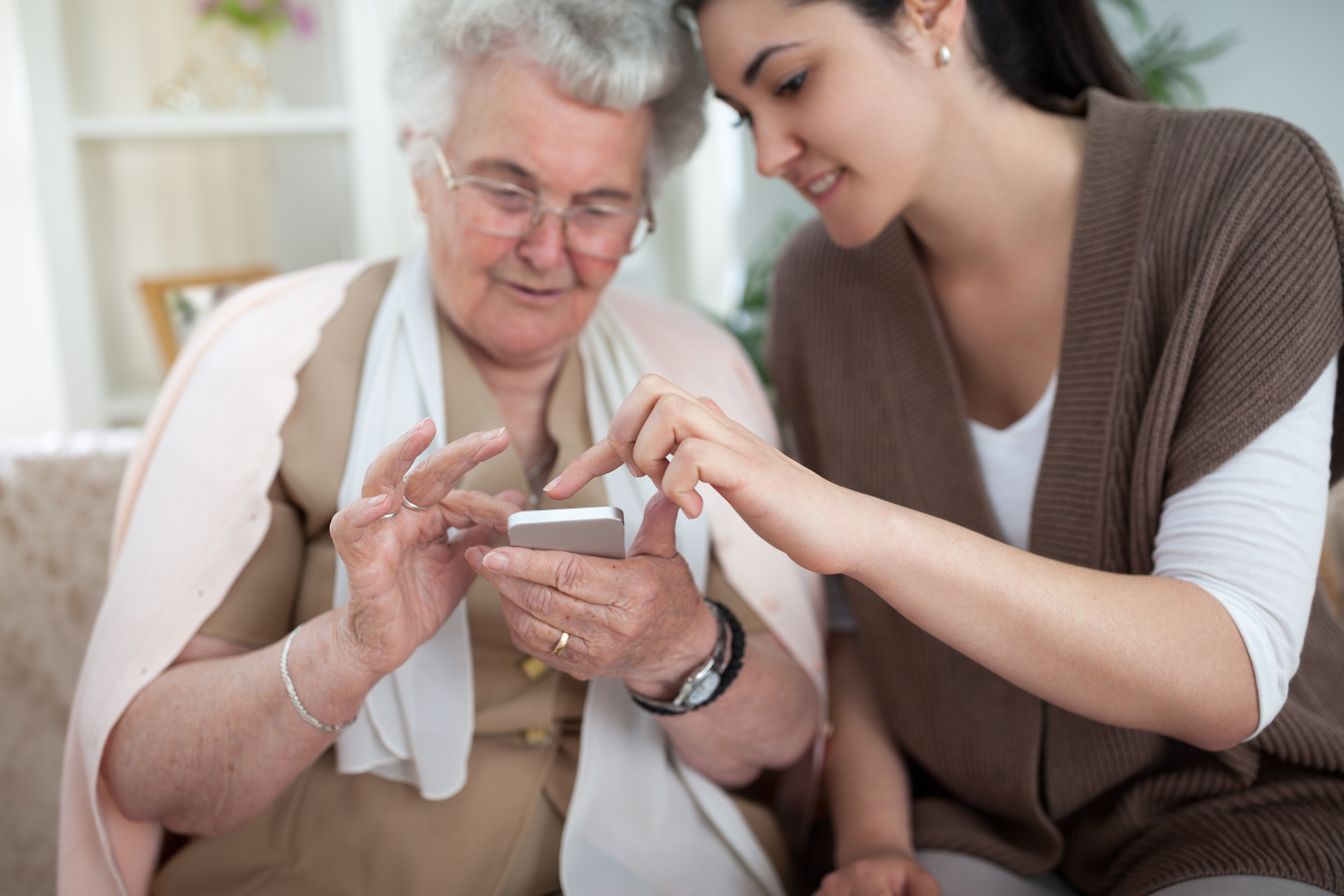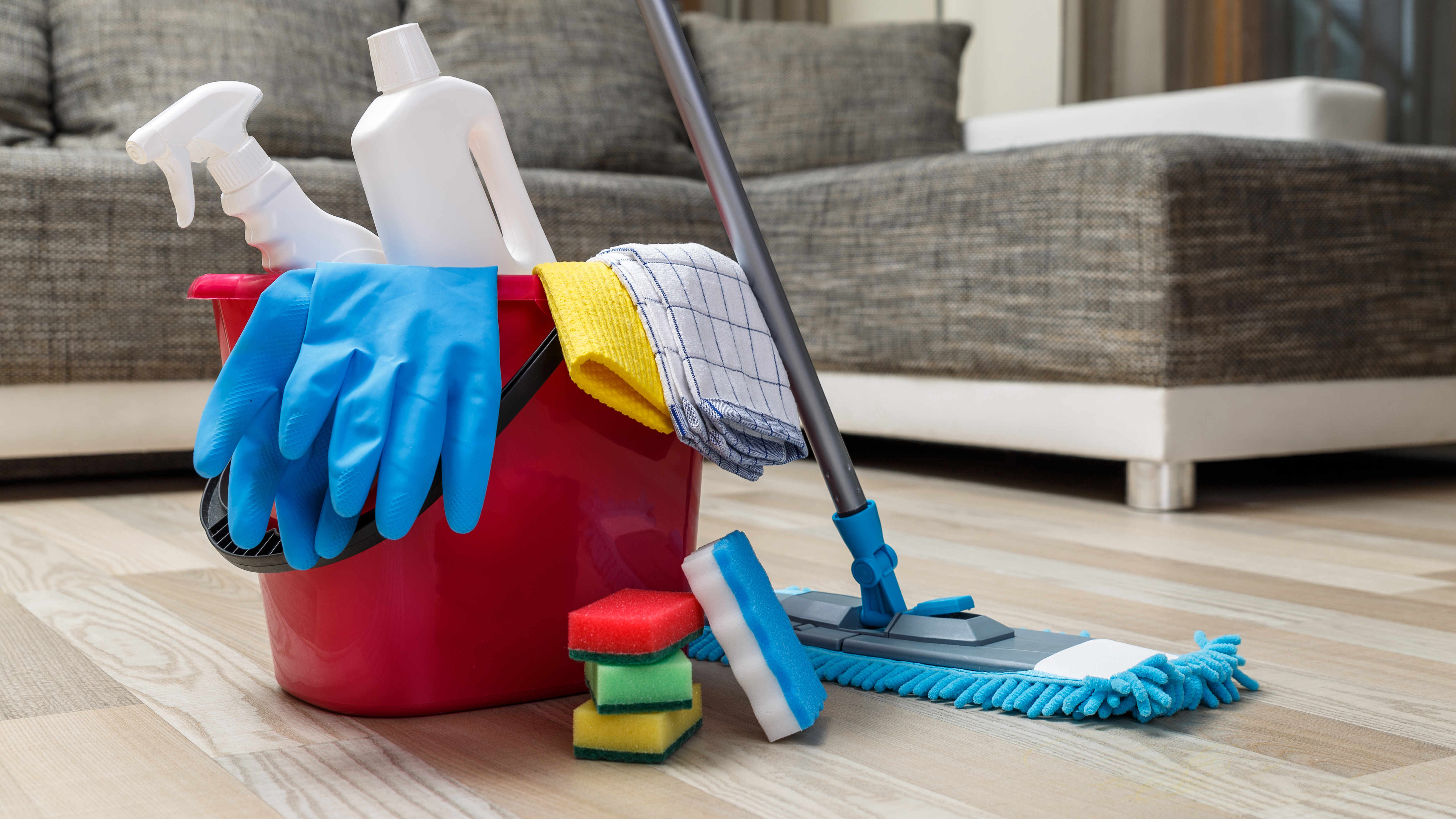How to Buy a Smartphone for Seniors: 6 Essential Tips
When shopping for a smartphone for a senior, it's important to look for a device that fits their particular needs. Here's what to keep in mind.
Ask Sami Hassanyeh, senior vice president of digital strategy and membership for AARP, how to find the best smartphones for seniors, and he'll tell you that it's the same way you'd find the best phone for anyone else: Pick the device that offers the features best suited for how you want to use your phone that's also priced within your budget.

After all, the stereotype of seniors flummoxed by high tech doesn't really hold up well to the reality of a generation that's used everything from PCs to portable gadgets as it's aged. "People 50 and older buy smartphones at the same clip as the rest of the general population," Hassanyeh said.
Still, some seniors have very specific phone requirements that can crop up as they age. For example, fading eyesight and deteriorating hearing add another layer of complexity to picking out a phone.
6 quick buying tips
- Opt for a screen that's at least 5.5 inches, and preferably 6 inches or larger, so long as it's comfortable to hold and carry.
- Buying a phone that's a generation or two behind the latest models can save you hundreds of dollars.
- Republic Wireless is a solid option for wireless service. It costs just $15 a month for unlimited talk and text, plus $5 for each gigabyte of LTE data.
- Consumer Cellular has its own mix-and-match plans, with discounts available for AARP members.
- The iPhone 6s Plus is a great phone for seniors, providing a big screen and accessibility features for a very reasonable $549.
- Seniors should opt for either iOS or Android, depending on what friends and family use, to speed up troubleshooting.
"Back in the day, when flip phones were the rage, it was much easier to build phones for seniors," said John Marick, CEO of Consumer Cellular, which specializes in providing wireless service for seniors. Flip phones could come with larger buttons, Marick recalled, while with smartphones, "it's harder to change the device itself."
And that can prove challenging for some seniors who want a smartphone. Take, for example, the mother of Tom's Guide reader Elyash, who needs a phone that can accommodate a few specific requirements:
In this particular case, I would start not with the phones but with the operating systems running on them. Both Android and iOS have excellent accessibility features, including the ability to read aloud what's on your screen, enlarge text and dictate texts, among other capabilities.
Get instant access to breaking news, the hottest reviews, great deals and helpful tips.
Personally, I'm a bit more comfortable using iOS, so I'd suggest an iPhone 6s Plus ($549). You'll get a big, 5.5-inch display on a phone that's capable of running the latest version of iOS, and you'll be giving up only some processing power, which you won't really need if your main interests are texting and email.
You'll also pay $450 less for an iPhone 6s Plus than you would for a top-of-the-line iPhone X. (And that's if you buy directly from Apple; you can likely find the 6s Plus for less than Apple's current $549 price if you search other online retailers.)
As for carriers, our favorite bargain wireless service comes from Republic Wireless, which charges $15 a month for unlimited talk and text, plus $5 for each gigabyte of LTE data you use. If you don't need any data, another carrier, Tello, will charge you just $11 a month for unlimited talk and text. And, of course, Consumer Cellular has its own mix-and-match plans, with discounts available for AARP members.
MORE: No-Contract and Prepaid Phone Plan Guide
For seniors who plan on using a bit more data than Elyash's mom, we break down what each carrier offers for individuals and families (including lower-cost prepaid options). Both Sprint and T-Mobile offer plans specifically geared toward customers 55 years and older, and we've compared those senior-focused plans to what Consumer Cellular offers.
Smartphone shopping tips
Getting back to shopping for a smartphone, Marick suggested answering the Android-versus-iPhone question by turning to the platform the senior's family and friends use, unless the senior has a particular preference. That way, they'll be able to get answers more easily from children, grandkids and neighbors for help whenever they have questions.
"Are you trying to stay connected? Are you trying to play games? Is the phone going to be your main device? ... That's the critical issue."— Sami Hassanyeh, AARP
Unless seniors are planning to become a smartphone power user, they also don't need to pay up for the latest and greatest devices, Marick added. Opting for a phone that's a generation or two behind the current release can save you hundreds of dollars. iPhones are particularly attractive here, as Apple's upcoming iOS 12 release will run on phones that came out five years ago. Budget Android devices can also keep your costs down if you need little more than the ability to text, call, email and do some light web surfing.
Another potential consideration is screen size. If you have deteriorating vision, more screen real estate may sound appealing — after all, "a bigger screen is going to be easier to see," Hassanyeh noted. But there's also the phone's overall size to take into account.
"A lot of people say bigger is better. For some, that's true," Marick said. "For other people, they want a phone that fits in their pocket, that fits in their purse." To that end, look at phones with the newer 18:9 aspect ratio, which offer that extended screen space without the extra bulk.
These are our top picks for the 10 best smartphones currently available. In addition, we've also found half a dozen or so phones with features that could appeal to seniors who want big, bright screens; easy controls; and a lower price tag. At the end of the day, picking the right phone for a senior isn't any different from shopping for a phone for anyone else: Identify what you want to do with the device, and shop for the phone whose features serve that purpose.
"It's a fit issue," Hassanyeh said. "What is it that you're trying to achieve? Are you trying to stay connected? Are you trying to play games? Is the phone going to be your main device? ... That's the critical issue."
To get answers to your burning tech questions, head to the Tom's Guide Forum for the latest tips from our resident experts and fellow members. You can also comment on this article or email us directly at helpme@tomsguide.com.
Philip Michaels is a Managing Editor at Tom's Guide. He's been covering personal technology since 1999 and was in the building when Steve Jobs showed off the iPhone for the first time. He's been evaluating smartphones since that first iPhone debuted in 2007, and he's been following phone carriers and smartphone plans since 2015. He has strong opinions about Apple, the Oakland Athletics, old movies and proper butchery techniques. Follow him at @PhilipMichaels.
 Club Benefits
Club Benefits






